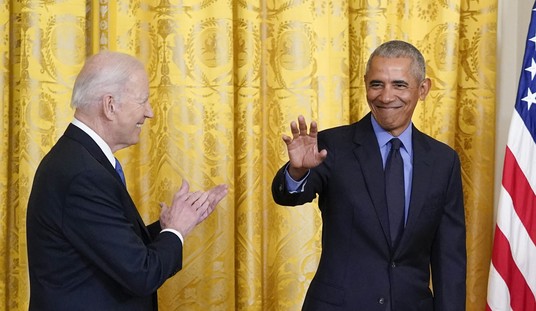You’ve undoubtedly heard the term “toxic fandom” at some point in your internet travels, and if you’ve expressed a negative opinion on any recent entries into a franchise, you’ve likely been accused of being in one.
What is a toxic fandom? In a word; fantasy. It’s the idea that your disliking the latest Star Wars entries have more to do with the fact that your fanboy/girl nature makes you overprotective of the brand and that any change is going to cause you to foam at the mouth and complain, boycott, or worse, personally attack actors and creators.
Oh, and you’re likely sexist, racist, or homophobic to boot.
This is, by and large, a false and misleading description, and I think many of the people behind these creations that are getting bad reviews know that. What it really comes off as is more of an excuse for their own failure to deliver a product the fans of any given franchise deserve and a distraction from the fact that the creator/s attempted to morph the world and characters that people had fallen in love with in disrespectful ways to push their own ideas or politics.
I think Geralt of Rivia himself, Henry Cavill, described the reaction from fans about the anger they exhibit when this happens best.
“I don’t consider that toxic. I consider that passionate,” he said when a reporter attempted to hit him with a leading question about toxic fandoms.
Cavill, something of a mega-geek himself, understands the difference between toxicity and righteous anger.
Let’s take the latest example of fans becoming angry with Kevin Smith and his Masters of the Universe reboot.
As reported by Bounding Into Comics, Clerks director Kevin Smith decided he was going to reawaken the He-Man franchise with a fresh new look. Fans began expressing fears that Smith was going to do what many other companies have done with franchises and wokeify and feminize it until it hardly resembled the characters and stories they grew up with.
Smith made it a point to deny that he would be doing this. It would be the same He-Man stories we all knew and loved, just updated and more in-depth. Promo artwork made it appear that He-Man would be front and center within the story and while we’d see a show that grew up with its audience, it would still be Masters of the Universe.
Nope.
Smith did exactly what fans feared he would and he completely ruined the Masters of the Universe universe. The women look overly masculine, the men are all weak and simpering, He-Man barely appears in it, and they turned Teela, the main character now, into an obvious lesbian. It almost seems like Smith was more concerned with passing the Bechdel test than writing a good story.
For a full review of it, the Critical Drinker’s video is likely the best description. Be aware of spoilers and language.
And Netflix wonders why it’s losing subscribers by the hundreds of thousands.
As of this writing, the reviews for the show on Rotten Tomatoes has Masters of the Universe: Revelation sitting at a 95 percent “fresh” rating by critics, which isn’t surprising. The critics themselves tend to fall over themselves to give woke garbage like this show positive reviews.
The audience rating is usually the more accurate judgment of a show, and it sits at 36 percent approval, making it “rotten.”
Kevin Smith failed. He took an IP that people knew and loved, doused it in the modern mainstream social tropes of feminist characters and lazily subverted expectations, and produced something that people didn’t like. Smith’s reaction only made it worse as he defended his creation and even told the fans to “grow up.”
Like Star Wars and Marvel movies before it, the angry fans were labeled as “toxic” with all the accompanying accusations of bigoted character flaws attached.
But they aren’t toxic. They just knew how that universe worked, how the characters acted, and Smith decided to wreck all of that in order to effectively create a new universe wearing the skin of the IP he killed. When this pretender shambled into the public square and told everyone it was a He-Man story, fans knew it for the fake it was right away and did what they have a right to do; express their displeasure.
Einstein said the definition of “insanity” is trying the same thing over and over again and expecting different results, yet creators continue to introduce unwanted politics and social messaging into rebooted franchises and are surprised and offended when people don’t like it. If the pattern continues to be that they’re making bad products that people lose interest in, then maybe the problem isn’t the fans.
A fan becomes a fan because they like the way a universe was created and exists. Altering that to the point of absurdity is likely going to make fans angry and that’s what everyone from Smith to Kathleen Kennedy has done with the IPs they were handed control of. They deserve to receive this backlash because they failed to uphold the story in ways that make sense to the universe people were fans of in the first place.
They failed. End of story.
Yes, there are people within these fandoms that are just awful and they will say and do things that are way out of bounds in a civilized society.
Welcome to the internet. Every single subculture has these people. They’re few in number and don’t define an entire fandom of millions that span generations. Using them as an excuse to label an entire fandom as toxic is as lazy as it is subversive. There are toxic people within fandoms, but it doesn’t make it a toxic fandom and more than a few pieces of litter at a park don’t make the park “trashy.”
If anyone needs to grow up, it’s producers and directors like Smith who need to take the L’s with grace and dignity when they receive them. It doesn’t mean he has to abandon the scene. It doesn’t even mean he has to abandon the show. Just do a better job next time, and doing a better job begins with listening to the fans.














Join the conversation as a VIP Member